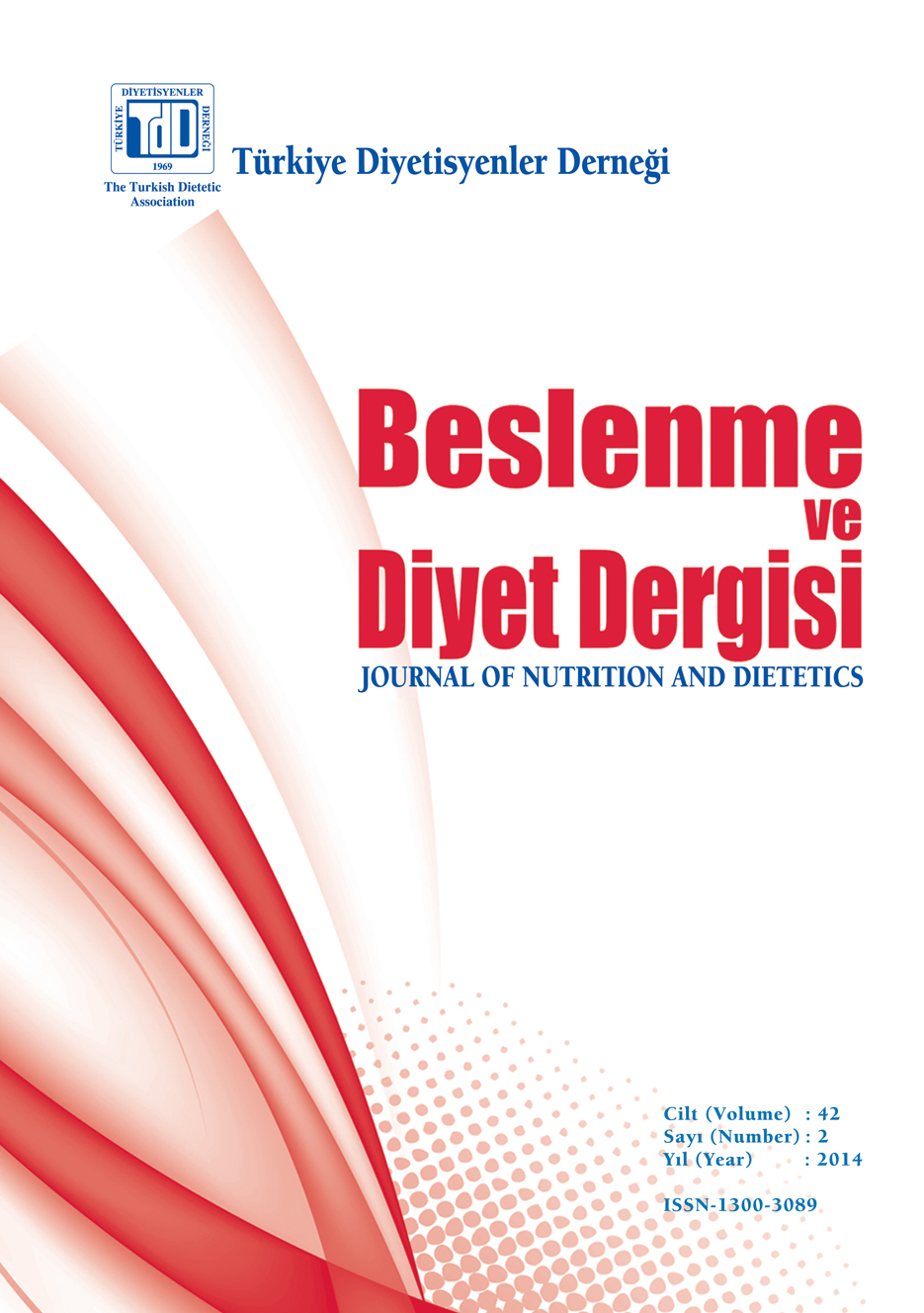An Evaluation of the Relationship across Emotional Eating, Uncontrolled Eating, Cognitive Restraint Behaviours and Body Compositions in Adolescents
Keywords:
Eating behaviour, Three-factor Eating Questionnaire-R18, body compositionAbstract
Aim: This study aimed to determine the relationship across emotional eating, uncontrolled eating, cognitive restraint behaviours and body composition in Turkish adolescents. Subjects and Methods: This study was conducted on 508 female high school students, aged 14-19 years, in Ankara, Turkey. Three-Factor Eating Questionnaire-R18 (TFEQ-R18) as a measure of emotional eating, uncontrolled eating and cognitive restraint was carried out to determine eating behaviours of participants. Total and subscale scores of TFEQ-R18 were classified according to their quartiles. Body weight, height and waist circumference (WC) were measured; and body composition was analysed (fat mass, fat free mass, skeletal muscle mass, total body water, percent body fat, mineral content, bone mineral content) by bioelectrical impedance analysis method using Inbody 720. Body Mass Index (BMI) and obesity degree (obtained using a reference value of ideal body weight ± 10%) were calculated by Inbody 720. BMI and waist circumference were assessed using z scores (WHO, 2007) and percentiles, respectively. Statistical analysis was performed by using the SPSS 15.0 statistical package program. Results: The mean score of total TFEQ-R18 was 41.4±13.34, and did not differ significantly by BMI of participants. However, BMI, WC, fat mass (both as kg and %) and obesity degree were significantly different by TFEQ-R18 score classification (p<0.05 for each). Among emotional eating, uncontrolled eating and cognitive restraint behaviours, only the mean of cognitive restraint score was significantly different among BMI groups (p<0.001, for each). The mean cognitive restraint score was significantly lower in lean participants compared to normal and obese participants (p<0.001). Furthermore, BMI, WC, fat mass (both as kg and %), lean mass, fat free mass, soft lean mass, total body water, total mineral, skeletal muscle mass, percent body fat, bone mineral content and obesity degree differed significantly between cognitive restraint score groups (p≤0.001). Conclusions: BMI and body composition are differed according to the total and subscale scores of TFEQ-R18 among adolescences. Especially, cognitive restraint behaviour of adolescents were found as a significant factor which can affect body mass index and body composition.

